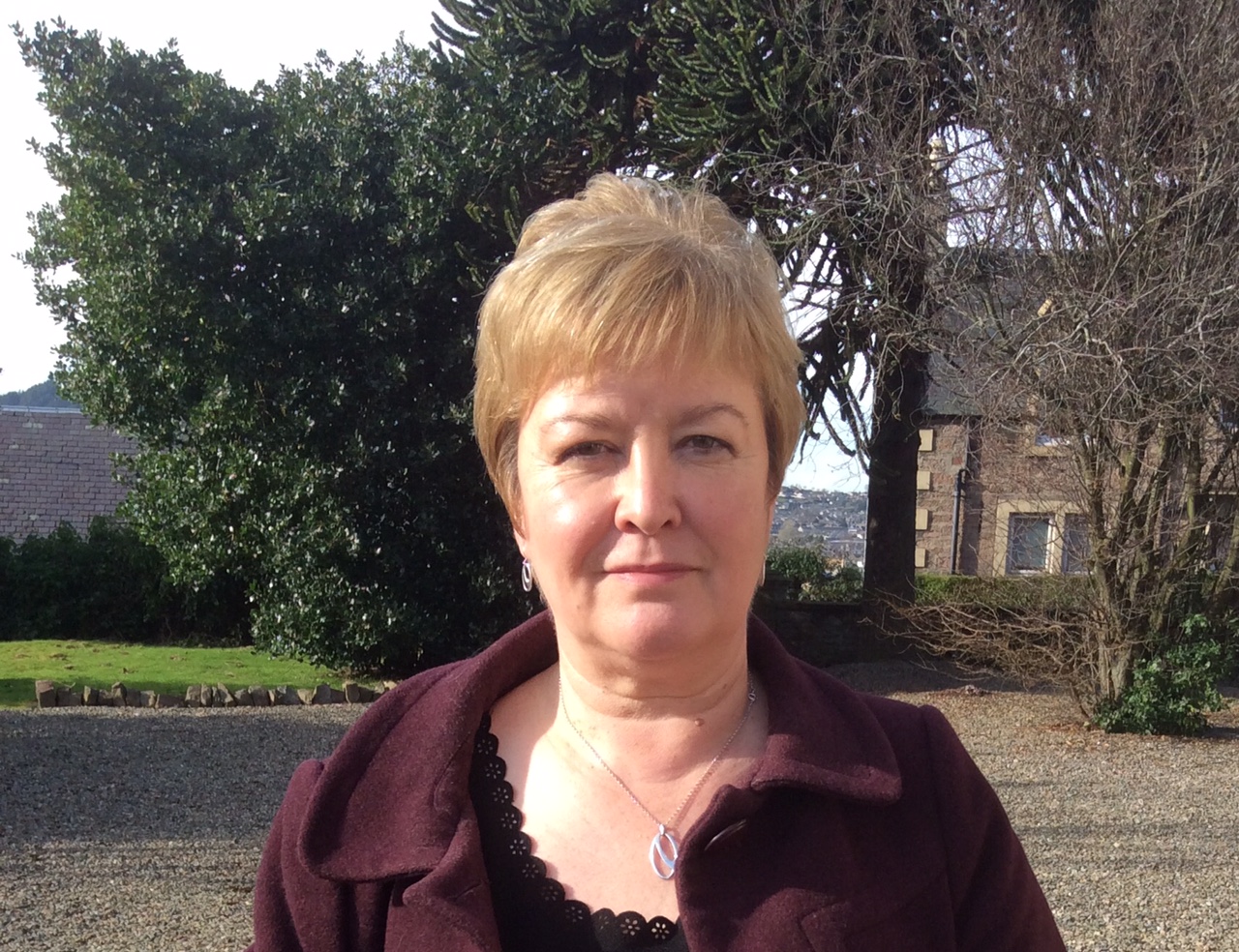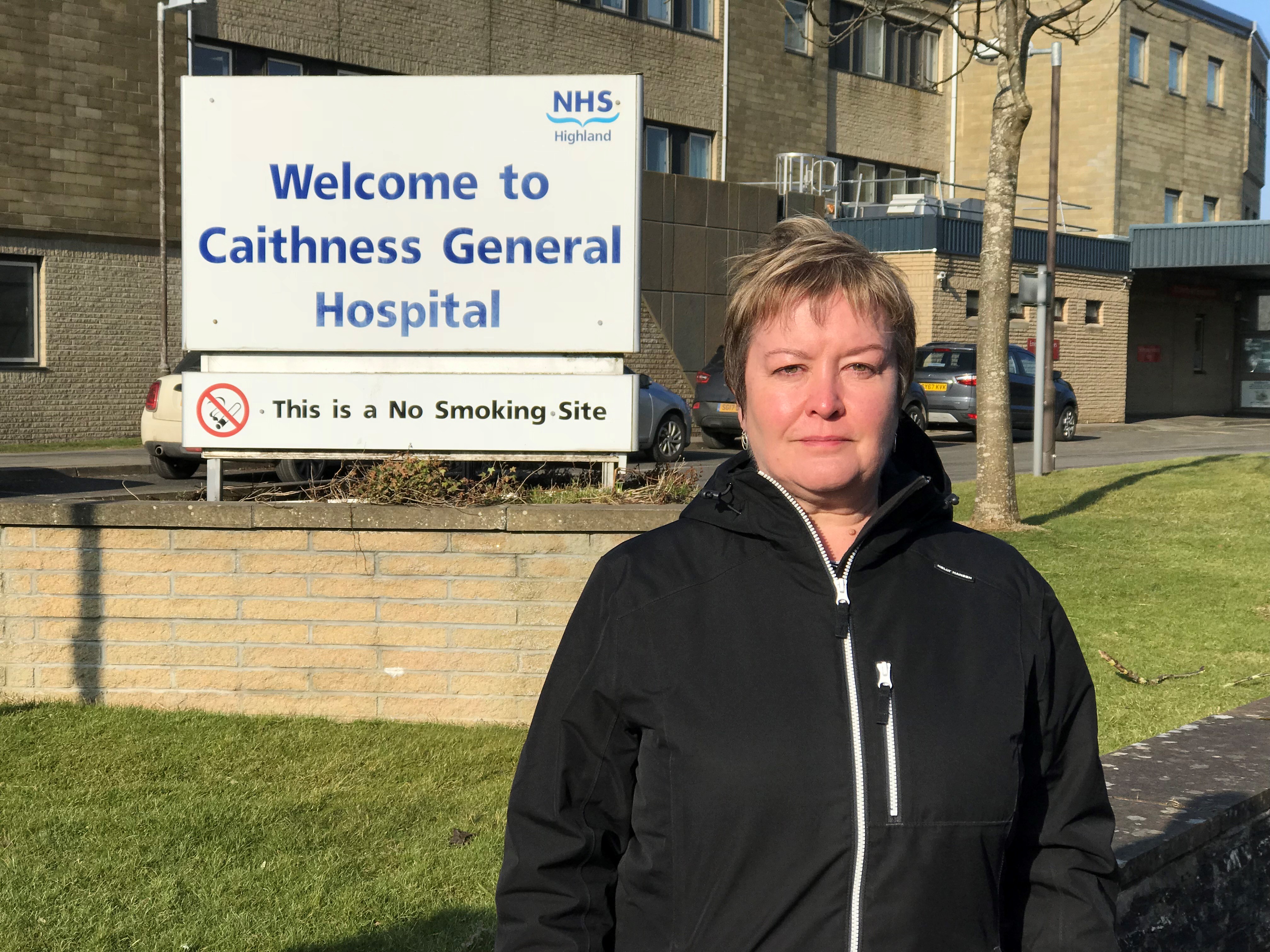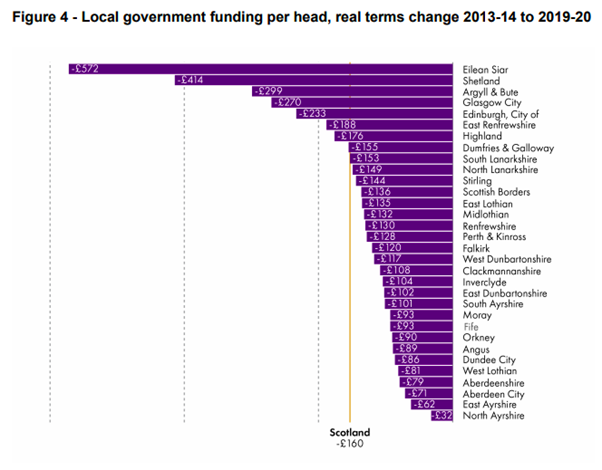Regional Labour MSP Rhoda Grant is delighted to see “light at the end of tunnel” for five kidney dialysis patients who are being forced to travel from Lochalsh to Raigmore Hospital in Inverness for treatment.
NHS Highland has said their preferred option is now to provide an interim dialysis service in the current Broadford Hospital.
It comes after Mrs Grant put pressure on the health service for this critical service to be brought to Skye after she learned in October last year that five patients are having to travel from Lochalsh to Inverness three times a week to undergo dialysis.
NHS Highland has now said a preferred option is to create an interim dialysis service in the day room of the current Broadford Hospital until the new Broadford Hospital is open to where it will be transferred.
Mrs Grant is going to contact the Chief Executive to ask when the service could start in the current Broadford Hospital.
She said: “This is fantastic news for the patients who have to endure a 160 mile return journey, three times a week for treatment in Raigmore Hospital. It will finally feel as if there is a light at the end of the tunnel as the journey must be long and exhausting. I am grateful to NHS Highland for looking into this and for moving forward on this issue.”
Mrs Grant continued: “I understand health professionals are looking into where current activities that are being run could be relocated to before they can provide a dialysis service but I will be asking NHS Highland to keep me updated on this.”
When a patient’s kidneys fail, dialysis treatment keeps the body in balance by removing waste, salt and extra water to prevent them from building up in the body.
Health Secretary raises Labour MSP’s concerns with NHS Highland and SAS
The Health Secretary has promised a “comprehensive response” to concerns raised by a Labour MSP into the methods of transferring pregnant women to hospital from Caithness to Inverness.
Rhoda Grant, who represents the Highlands and Islands, wrote to Jeane Freeman last month renewing her call for a full risk assessment on such transport after receiving an edited version of an investigation into the birth of twin babies, born 50 miles apart.
In February Mrs Grant asked the First Minister why the air ambulance was not initially called when the Caithness mother of the twins went into labour at 30 weeks.
In June, after the MSP received of ‘precis’ of a report into a Significant Adverse Event Review of the twins’ incident – from the new NHS Highland Chief Executive, Iain Stewart – she wrote to Ms Freeman, the Scottish Ambulance Service and NHS Highland looking for answers to several questions raised by the case.
In Ms Freeman’s recent reply to Mrs Grant, the Health Secretary says: “Your letter raises a number of concerns, particularly around the emergency transfer of pregnant women in Caithness by SAS and training and equipment provision for obstetric emergencies in the area.
“As you will agree, patient safety is paramount, both for delivering mothers and their babies, which is why I am raising the concerns detailed in your letter directly with the health board and SAS to obtain assurance that service delivery is of the high quality expected by and for pregnant women in Scotland.
“I will write to you again following these discussions to provide a comprehensive response to the issues you raised.”
In the precis of the report NHS Highland said that the air ambulance helicopter was “a highly unsuitable environment for the delivery of a baby” and Mrs Grant wanted to know what aircraft can be used to airlifted pregnant women to hospital in an emergency.
“I also raised a number of other questions about equipping staff with specialised skills and training that would allow them to carry out checks normally carried out by an obstetrician and also about the prospect of another review, bringing in other Caithness cases,” said Mrs Grant.
“It is now good to know that the Health Secretary is to follow these up with the health authority and ambulance service which have yet to reply to my questions.
“There must be a full risk assessment carried out on what transport can be used and when and what craft is suitable for airlift in emergencies with pregnant women.
“If pregnant women at risk cannot be transferred by air or by road, perhaps due to weather conditions or the need for an urgent delivery, what is the plan for Caithness? What equipment and expert advice is available for the midwives and other health professionals?
“It is vital that the people of Caithness get some answers to questions that have been asked over many, many months without suitable answers.
“I’m anxious that no pregnant women will have to go through such a risky transfer to hospital as that suffered by the twins’ mother.”
- Previously, at First Minister’s Questions, Mrs Grant told Nicola Sturgeon the woman had bravely shared her experience of giving birth under the current maternity provisions in Caithness. After going to Caithness General Hospital, the mother was informed that she would have to go to Inverness by road ambulance, over a 100 miles away and two- and half-hour drive.
- Mrs Grant told the First Minister: “Half way into that journey they had to stop at a community hospital at Golspie when the first twin was born breech.
- “The air ambulance was then tasked but because it would take two hours to arrive the first twin would be sent by road to Inverness.
- “The helicopter could not land, another air ambulance was tasked but this would take too long therefore a second ambulance resumed the journey to Inverness where the second twin was born.. Thankfully after prolonged stay in hospital all are now doing well.
- “However, it begs the question why was the air ambulance or emergency retrieval team not tasked initially airlifting the mum from Caithness.
- “Will the First Minister investigate this, and will she make sure that the air ambulance treats situations like this as a priority?”
- Nicola Sturgeon promised to investigate and conveyed her good wishes to the family. She said she could not answer immediately as to why the air ambulance was not initially tasked, and did not have information in the chamber, and but she asked the Health Secretary, Jeane Freeman, to investigate this.
SNP Hammers Highlands and Islands Councils with cuts
The SNP Government has hammered Highlands and Islands councils with cuts to their budgets, putting lifeline services at risk.
New figures from the independent Scottish Parliament Information Centre (Spice) show that between 2013-14 and 2018-19, local authorities’ budgets were cut per person in real terms.
For the Western Isles Council it was £572 per person; Highland came in at £176; Moray £93; Orkney £90; Shetland £414 and Argyll and Bute £299.
Across Scotland, council budgets were slashed by £810million in real terms during the period.
Scottish Labour says the cuts have put lifeline services at risk and show the SNP has not only failed to stand up to Tory austerity, it has turbo-charged it on councils
Highland and Islands Labour MSP Rhoda Grant said:
“The SNP has hammered Highland Council with year after year of cuts. These cuts have put lifeline services like schools and social care at risk.
“More than £800million has been stripped from councils in real terms in recent years.
“Instead of using Scotland’s powers to stand up to the Tories, the SNP government has used Holyrood as a conveyer belt for cuts.
“And we know these cuts have been made amid the government sitting on almost half a billion pounds of unspent cash.
“It’s time for Finance Secretary Derek Mackay to listen to Scottish Labour and use this money to properly fund local services.
Highlands MSP asks Scottish Government to support vulnerable ferry passengers.
Highlands and Islands MSP Rhoda Grant has asked the Scottish Government to provide support for people with health concerns or mobility issues by allowing them to bring escorts on ferry trips free of charge.
Currently EU regulations stipulate that escorts can be carried free of charge if the ferry provider has requested that they are present, but Ms Grant wants the support to be offered for vulnerable passengers as standard.
Ms Grant said: “I have a number of constituents, particularly those in the islands, who are required to travel to the mainland for medical treatment which is not provided in their home area. As well as having to cope with side-effects from treatments, such as chemotherapy and operations, many of these constituents may require support for anxiety, depression or to face possible diagnoses while visiting mainland clinics.
“In addition there are a number of constituents with mobility issues, permanent and temporary, who would feel great relief at being able to travel with an escort that they trust, without having to bear the extra financial burden.
“With many NHS boards now refusing or unable to financially support escort travel I feel strongly that it would provide an invaluable service to vulnerable passengers if they were able to bring escorts with them at a reduced cost.
“I hope that the Scottish Government realise that such a move could provide significant support for some of the most vulnerable in our society at a marginal cost to them.”



